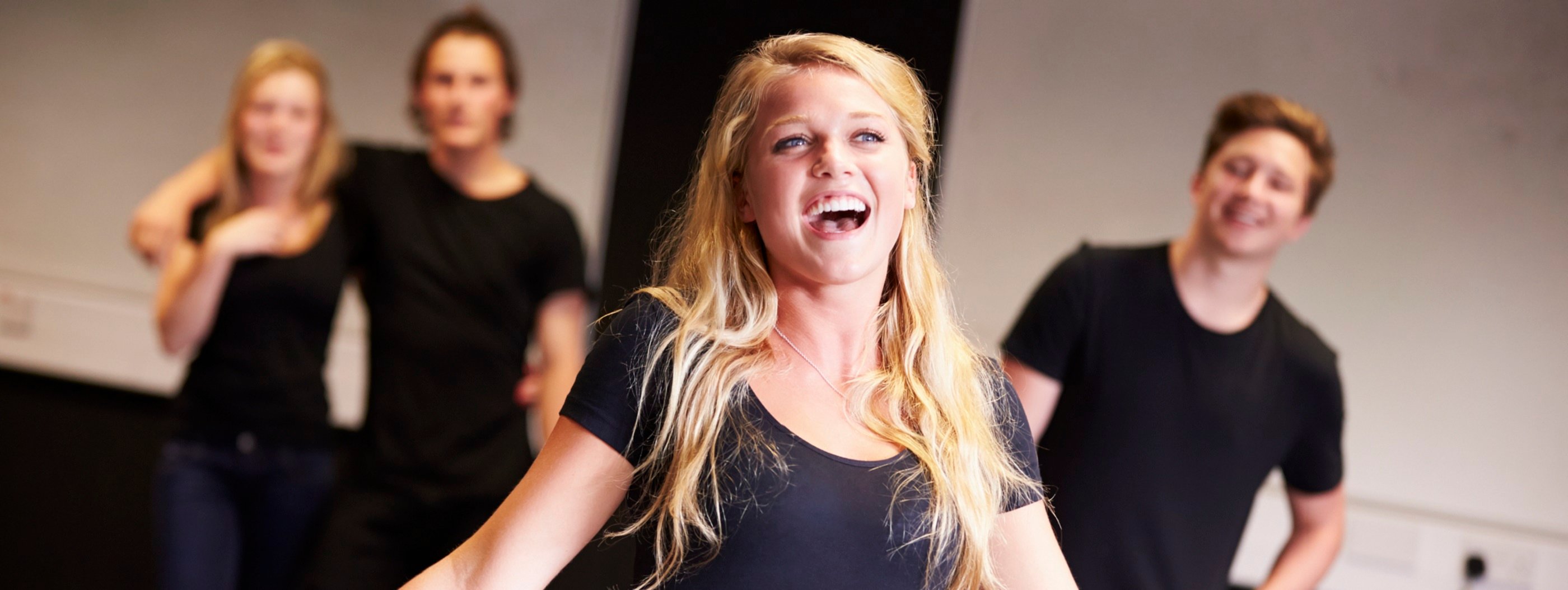
Incorporating music examinations at your theatre school with Act II Theatre Company

BY: Amy Lee
10 October 2022
In this blog we speak to Charlotte Gernert, the Director of Act II Theatre Company, based in Spalding, Lincolnshire. The company has been incorporating Trinity Classical and Jazz Singing examinations at their theatre school for the past 13 years, using small group classes to teach up to grade 5, and private classes for grade 6 onwards. Read on for the benefits of teaching singing in groups, and for advice on including music examinations at your youth theatre group.
We are primarily a performance-based theatre company with all of our classes working towards two productions per year, but we have such a wealth of talent that we wanted to give our students the opportunity to achieve recognised qualifications for their performance skills too. We chose Trinity because we wanted an exam board that offered both acting and singing qualifications, they had a great reputation and I found all the reps and staff to be very approachable.
Over the years, we have developed our teaching practices to something that I think is a little different to traditional music lessons but serves to complement our performance classes, and has proved very successful for us and our students. Up to grade 5, we teach in small group classes (with a maximum of 6 people in each). This gives students the opportunity to learn in a supportive environment with their peers, singing both in a group (unison and harmony) and solo (we don’t solely learn exam pieces). It means the spotlight doesn’t always have to be on them, they can develop skills through watching and listening to others, older members provide inspiration for those just starting out on their exam journey, and it hugely builds confidence in singing in front of others. It also enables us to keep costs cheaper and more affordable for parents. All of our singers also follow Trinity's Music Theory syllabus. We teach this as an essential skill for a singer. It can sometimes be a challenge to fit in everything and ensure everyone is progressing at an appropriate pace, but with careful planning of classes we have found this is very achievable. When working at its best, our classes are filled with laughter, energy and instill a great love of singing.
From grade 6+ we teach one-to-one; at this level we feel it’s necessary for students to be prepared sufficiently, to learn on their own. The group classes are a great grounding for teaching them the importance of practice – with less one-to-one time it’s vital for them to be backing it up at home (and students doing less may see others progressing better through practice and this encourages them!). We find that once they get to grade 6+ they have all these routines in place.
We now enter all our students via the digital exam option. This began during the covid lockdowns. While teaching online certainly presented challenges (as I’m sure all music teachers are aware!), our exam classes were able to move forward much more than our performance-based classes because we could still be working towards exams. In a world where everything was grinding to a halt and changing, our students were still able to work towards something and achieve. It was hugely valuable to them. We have even started annual recital evenings as a result!
I would recommend to anyone running a youth theatre company to explore the possibility of delivering singing exams. We see more confident students, refining vocal technique, developing performance skills, all of which translates to when they are performing on stage. It gives a sense of achievement (and a recognised qualification) that they are all very proud of.
Check out This is Trinity for more singing resources, including blogs, and direct advice and ideas from singing teachers in our Teacher's Guide to Singing.
Related posts
BY: Sue Clarke: Subject Expert - Drama




Comments & Replies